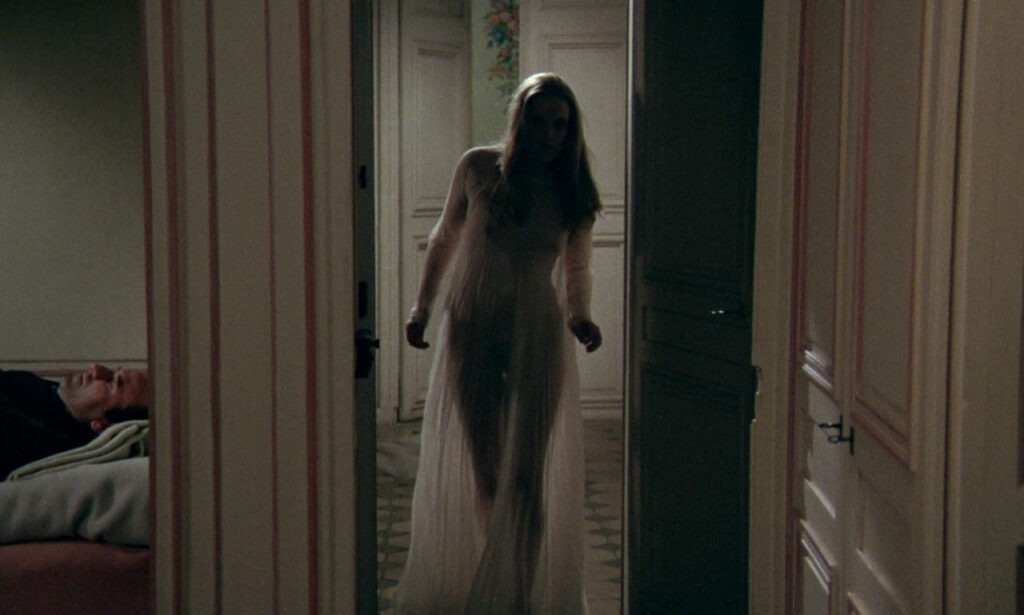This piece originally appeared on a different blog in 2015. At the time the Film Society Of Lincoln Center was hosting a retrospective of Borowczyk’s work.

Between April 2nd and 9th, the Film Society Of Lincoln Center has been engaged in a near completest retrospective of Polish filmmaker Walerian Borowczyk. Between his numerous shorts and his exploitation features one is struck by not only Borowczyk’s stylistic diversity, but by the fact that, despite his reputation in the popular consciousness, he is a tremendously gifted filmmaker. One could say that these misconceptions of Borowczyk are born out of his inconsistent branding in the home video market. Films like The Beast (1975) and Love Rites (1988) have found a “cult” notoriety via releases through distributors like Cult Epics. Thus, on online media platforms and social media, fans discuss his films exclusively in the context of the exploitation genre, drawing comparisons to other filmmakers such as Jean Rollin and Jess Franco. Yet, unlike Rollin or Franco, Borowczyk is an Eastern European with a decade long background in experimental animation and political filmmaking; an alignment in sensibilities far removed from the neo-gothic stylists Franco and Rollin. Borowczyk’s background plants his sensibilities closer to the European avant-garde of Chris Marker (a sometimes collaborator and champion of Borowczyk’s films), Luis Bunuel, Alejandro Jodorowsky, and particularly Andrzej Żuławski (another Polish filmmaker who lived and worked in France).
Unlike most other members of the avant-garde, Borowczyk’s features are distinctly exploitation films. But this anomaly is one of necessity. As censorship lapsed with the advent of a mainstream commercial adult film market in the late sixties there was, for a brief opportunity, a means by which a filmmaker could produce a film with content that, even today, could not normally find its way out of the exhibition of adult films. Combine that with the fact that a mainstream producer or government grant would balk at the prospect of financing a film like Goto: Island Of Love (1968), and you have a filmmaker seeking funding where he knows he can get it; exploitation films.
Even as an avant-garde filmmaker Borowczyk is not typical. If one were to compare The Beast to the works of Bunuel or even David Lynch it would be apparent immediately that, of the three filmmakers, Borowczyk has the least amount to express in a single shot. That is to say that, unlike the high styles of his contemporaries, Borowczyk opted to present his images in flat, brightly lit compositions, avoiding the dark moodiness of say Lynch, the playfulness of Jadorowsky, the headiness of Bunuel, the reflexivity of Marker, etc. For Borowczyk it is enough that the narrative exists. It is enough to present that narrative to an audience, with all of its social and political subtexts in tact, as bluntly as possible. This is why so many viewers tend to complain about how uncomfortable Borowczyk’s films make them. And this is clearly his intent. The matter-of-fact style with which he presents the ravishment of the Duchess by the Beast in The Beast is what heightens not just the absurdity of the image and the narrative, but also the audience’s association with the reality of that world.
Avant-garde stylistic tactics in feature-length narrative films have been well established since the twenties as an outcropping of the Surrealist, Expressionist, and Dadaist movements. Therefore a film audience is accustomed to a particular approach, a thread in the compositional element of the image that connects a majority of these films together. When Borowczyk inverts that tendency by denying it, the audience is left without any immediate comfort. This prompts the audience then to evaluate the film in terms of their own subjective reality in a dialogue with the film that they are unaccustomed too.
The “lack of style” as style makes perfect sense when one considers Borowczyk’s background as a political filmmaker and animator. The primary goal of any political art is to find a way to subvert the audiences’ preconditioned expectations by realigning their relationship to the concept via the visual presentation of said concept. That is precisely what Borowczyk succeeds at in his films Goto, Island Of Love and Blanche (1971). But when he has transitioned into the exploitation film market he has opted for a Freudian analysis of human sexuality in the post-modern age.
This isn’t to say that Walerian Borowczyk is one of the masters of cinema or that all of his films are worth seeing. In fact, I find most of his films to be hit or miss at best. Even the most die-hard fans of Borowczyk will readily admit that his best features were his first two which he made prior to his proper entrance into the genres of exploitation and pornography.
